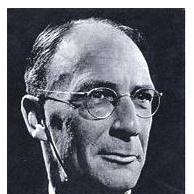


Сесил Скотт Форестер

Cecil Scott Forester was the pen name of Cecil Louis Troughton Smith (August 27, 1899 – April 2, 1966), an English novelist who rose to fame with tales of adventure with military themes. His most notable works were the 11-book Horatio Hornblower series, about naval warfare during the Napoleonic era, and The African Queen (1935; filmed in 1951 by John Huston).
Born in Cairo, Forester had a complicated life, including imaginary parents, a secret marriage and a debilitating illness. He was educated at Alleyn's School and Dulwich College in Dulwich, South London. During World War II he moved to the United States where he wrote propaganda to help get that country to enter the war on the Allied side, and eventually settled in Berkeley, California. He married Kathleen Belcher in 1926, had two sons, and divorced in 1945. The eldest son, John Forester is a noted cycling activist and wrote a biography of his father. In 1947, C. S. Forester secretly married a woman named Dorothy Foster. He suffered extensively from arteriosclerosis later in life.
The popularity of the Hornblower series, built around a central character who was heroic but not too heroic, has continued to grow over time. It is perhaps rivalled only by the much later Aubrey–Maturin series of seafaring novels by Patrick O'Brian. Interestingly, both Hornblower and Aubrey are based in part on the historical figure, Admiral Lord Dundonald of Great Britain (known as Lord Cochrane during the period when the novels are set). Brian Perett has written a book The Real Hornblower: The Life and Times of Admiral Sir James Gordon, GCB, ISBN 1557509689, presenting the case for a different inspiration, namely James Alexander Gordon.
The original conception of the popular American television series Star Trek was based in large measure on the Hornblower books, and was pitched as such to NBC television by creator Gene Roddenberry.
Forester also had a life outside the Hornblower series, writing many other novels, among them The African Queen (1935) and The General (1936); Peninsular War novels in Death to the French and The Gun; psychological murder stories like Payment Deferred (1926) and Plain Murder (1930); and seafaring stories that did not involve Hornblower, such as Brown on Resolution (1929), The Ship (1943) and Sink the Bismarck! (1959). Several of his works were filmed, most notably the 1951 film The African Queen directed by John Huston. Forester is also credited as story writer for several movies not based on his published fiction, including Commandos Strike at Dawn (1942).